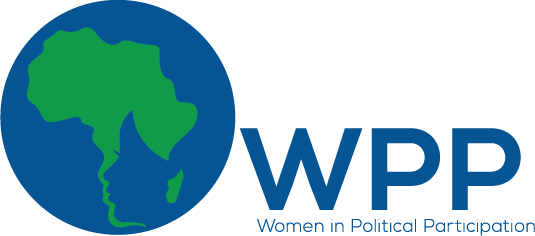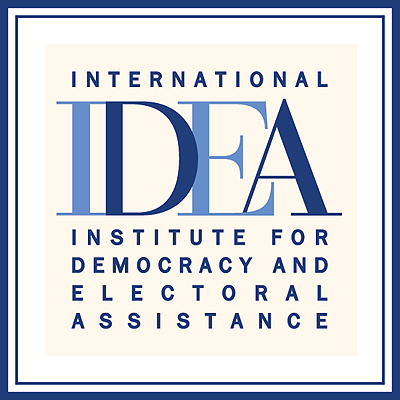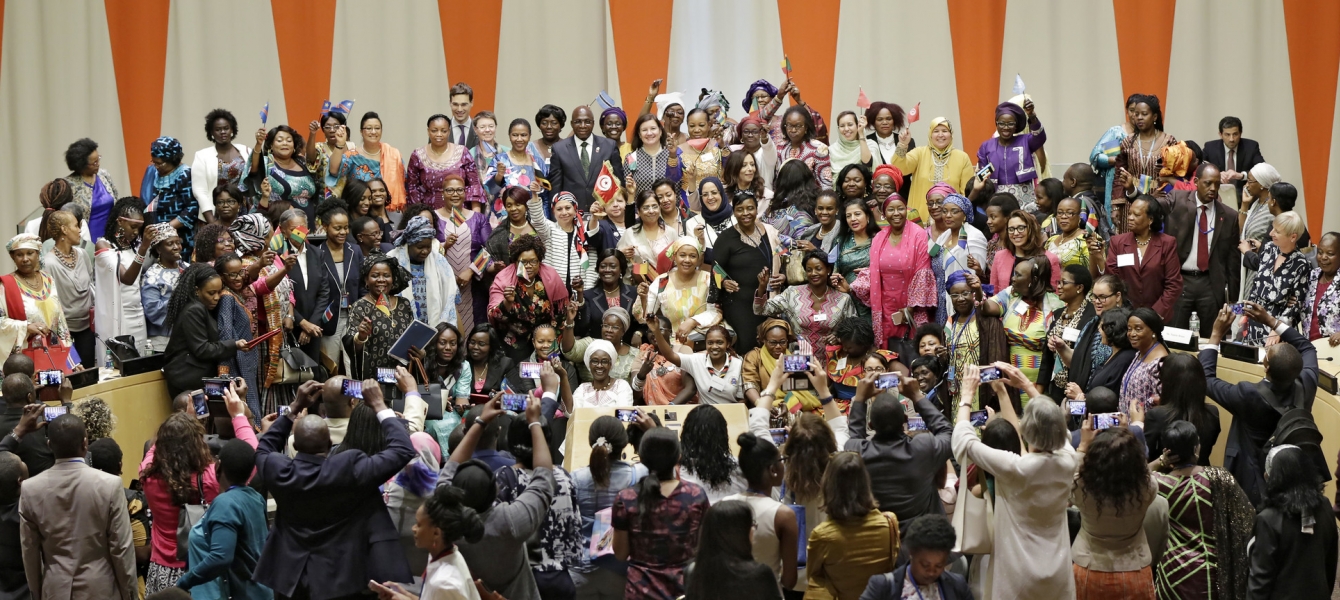The struggle for women’s participation in public affairs and the political life of their countries as equal actors has been an enduring feature of the entire period since independence in Africa.
From being integral players in the mass mobilisation and campaigns, both civic and armed, that ushered the countries of the continent to independence, women were subsequently to be relegated to the margins of the state and nation-building efforts that were embarked upon by a succession of regimes soon after national political freedom from formal and direct colonial rule had been won. Across the continent, women and their concerns were consigned to a residual category in various aspects of national life on arguments that ranged from the outrightly outrageous, unedifying, and embarrassing to the patently ignorant, mischievous, and frivolous.
These arguments purported invariably to explain why women could not be entrusted with public responsibilities and roles as full and equal participants and citizens. They continue to be deployed even to this day, more than six decades after the first African country became independent and despite a massive campaign of awareness underwritten by women and their organizations. Though mostly packaged and justified on grounds of culture, tradition, and religion, the arguments in fact reflect and bear the hallmarks of an embedded patriarchy and the relations of power woven into it that have always instinctively privileged men over women in politics, the economy and society.
Over the years since independence, it has been the historic responsibility of women to exercise agency and organize themselves and others to try to contest and overcome marginalisation, discrimination, stigma and domination. They have done so to building local and global alliances and using a variety of strategies and tactics. Within individual countries, despite an unevenness of organizational capacity and results obtained, many have worked alone and together to mobilise opinion and action in order to push the case and leverage opportunities for better and greater voice, presence, and participation in the public domain and in decision-making. Through the various women’s organizations they created to press for change towards a more inclusive system of governance in which they are able and enabled to play an equal role, successes were registered in forcing open the door of patriarchy even if progress has remained slow and uneven within and across different countries. From spirited and sustained campaigns in support of the education of the girl-child and against such harmful “traditional” practices as female genital incision and breast pressing to intense advocacy for a greater gender diversity in public administration, the formal/organized private sector, and party politics, indefatigable struggles were waged to tame and overcome the worst forms of patriarchy.
As it pertains specifically to their political participation, the thrust of much of the struggles waged by successive generations of women over the years has been, in an incremental manner, first to overcome total exclusion and cynical tokenism and then strive towards winning a seat by right at the table of decision-making with full powers and on equal terms. Arguments deployed to justify locking women out of political participation, including the notion that the place of the “decent” woman is in the house—were confronted head on with counter-arguments demonstrating just how political the personal also is. The idea that women are only good for adding colour to and entertaining audiences at political rallies with dances or being lined up on election day to vote as directed by political barons was roundly challenged as was the resort by male political leaders to offering token appointments to women in a bid, mostly cynical, to satisfy appearances but not necessarily change anything in relation to the asymmetries of power that exclude and penalise women. As counterarguments, women’s rights activists lost no opportunity to note that the male domination of politics in Africa has fed political violence and instability and corruption and mismanagement, among many other ills that have plagued the continent since independence. Suggestions have been made frequently enough that women, if opportuned, might just do a much better job than the male politicians.
Campaigns for political reform and change waged domestically in various countries by women and their organizations were also extended to the regional and international levels using all available platforms and opportunities. Particularly significant in this regard were the platforms offered by the United Nations (UN) family of organizations, the African Union (AU) and the various African Regional Economic Communities. From the 1994 Cairo UN Population Conference to the 1995 Beijing Conference to the AU’s 2003 Maputo Conference and the 2008 SADC summit, decisions were adopted on these various platforms and occasions that boosted the campaign by women for greater and more equal political participation as much in local affairs as in continental and global affairs. The UN Millenium Development Goals and their successor Sustainable Development Goals were deliberately leveraged too to advance the local and global causes for women’s equality. Thus, it was that a spate of policy commitments and conventions came to be adopted and which, today, despite their limitations, serve as a useful framework for measuring and assessing progress within and among nations. Some of the targets set at the Beijing Conference and those included in such outcome documents as the AU’s Maputo Declaration and the SADC Gender Protocol have, thanks primarily to the efforts of women themselves, been refracted back into domestic political and policy processes and taken further, with success in some instances, towards a “50-50” and “Zebra” agenda for the equal participation of women. The gender equality aspirations of women, including their better representation in parliament, have also been written into the national constitutions of several countries and become embedded in the policy practices of the AU and the RECs.
There is no doubt that, today, Africa boasts a growing number of countries where the representation and participation of women in politics has registered significant progress, with Rwanda standing out as one of the very best performers on a global scale. Rwanda is not alone; Kenya, Namibia, Senegal and South Africa are among the countries that have also registered and even sustained major progress. However, despite the progress that has been made, few will doubt that much more remains to be done even as efforts need to continue to be invested to ensure that the progress registered is not reversed and the women who enter into decision-making institutions are empowered to play their role in full. It is here that this research project has been deemed necessary as a contribution to both achieving a better understanding of the dynamics of women’s political participation and contributing to its further deepening and advancement. The need for such a project is further underlined by the unspoken but widespread assumption that a huge proportion of women in political office function mostly as "flower girls", to use a Kenyan parlance, who merely serve "decorative" purposes in places such as parliament whilst religiously doing the bidding of the party, the political godfather, or the president.
The project aims, at a broad level, to undertake an assessment of the extent to which women who have gained a significant entry into institutions of power and decision-making have been effective in advocating and advancing the agenda of women’s equality in Africa. More specifically, the project seeks to:
- Better understand the motivation and agendas that propel women who participate in politics and succeed in winning an entry into the mainstream of the political processes and institutions of their countries;
- Examine the interfaces, if any, between the agendas of the women in politics and the specific goal of advancing the equality of women in society generally and political decision-making in particular;
- Explore the dominant influences on women in active political positions that shape the choices which they make as actresses alongside other players in the governance system;
- Assess the connections between the broader societal and citizen concerns articulated by the women in active political and decision-making and the advancement of the interests of women; and
- Identify similarities and differences in the political engagements and gender equality agendas of directly elected and nominated female members of parliament with a view to drawing comparative observations about their performance.
Prospective participants in the project are invited to submit an abstract of not more than two pages clearly outlining the specific component of the objectives of the research they wish to engage with and how they intend to do so. Authors of abstracts accepted will be invited to develop full papers for further consideration. Preference will be given to abstracts and papers that are grounded in solid field work and backed with empirical data. Out of the papers, a book on the contemporary politics of women’s participation in Africa will be published and a set of policy recommendation will also be issued separately for use in further refining policies and campaigns.
DEADLINES:
- Abstracts will be received up to 15 July 2020.
- The draft papers of authors of shortlisted abstracts will be required by 30 September 2020.
- Final revised papers for peer review and publication will be expected by 30 October 2020.



